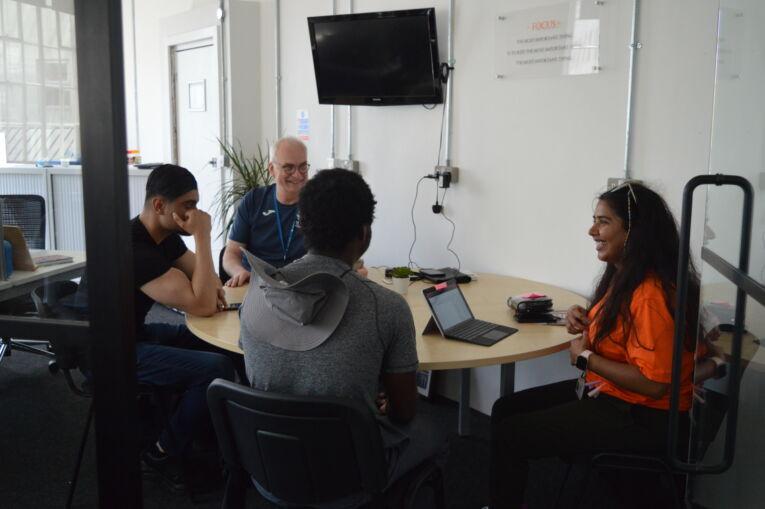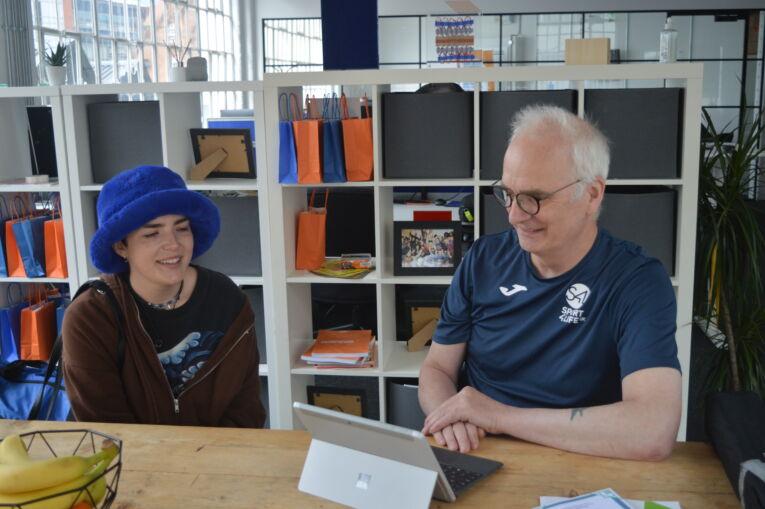A mentor can change your life!
That’s right, a good mentor can literally change the direction your life was going in and empower you to make decisions that help you aspire to create the future life and direction you want to achieve. National Mentoring Day, launched in 2016 was created to recognise the amazing contribution that mentoring makes to the economy, businesses, education, communities, and society. Anyone can join in the annual celebrations to thank individuals who mentor across all walks of life.
The campaign has become a significant day in the calendar and is celebrated worldwide to shine a spotlight on mentors and mentoring initiatives making a difference. NMD’s mission is to make mentoring accessible to every individual, child, business, or group that needs it, regardless of age, background, or ethnicity. NMD educates, connects, celebrates and supports all forms of mentoring and we at Sport 4 life are really pleased to be joining them this year and taking part in the activities.
Many people ask ‘what is a mentor’.
Well, a mentor is an individual that you can ask for advice and motivation in your personal life, your work, or both. Mentors usually help less experienced individuals through the learning process by building trust and providing positive behavioural examples. A mentor will see the importance of their experience and knowledge and want to share it with others, many mentors decide to assist in education, careers advice or behaviour and aspirations.
Mentors are excellent providers of information. They have often gone through comparable milestones to their mentee, whether that’s getting the most out of education, starting a business, returning to training, or changing careers.
How do you choose a mentor?
Picking a mentor is not always easy. You need someone who can best help you understand where you are in your present stage of life or career. Since they have already gone through it, they can relate their experiences to your own and offer information, advice and guidance. All Sport 4 Life Mentors are trained & qualified as mentors in order to be fully able to work with young people aged 11 – 29 years and require a wide breath of the support and guidance.
A mentorship functions very similarly to an informal contract. Your targeted goals will determine the level of formality. Schedule a meeting with your mentor to iron out the specifics of the agreement after you’ve given it some thought as to who you want to play this position. Future encounters will be more productive if you know how much time this person intends to devote to mentoring you.

Informal mentorships can involve reaching out to your mentor via phone calls, messages, or emails when you need advice. In formal mentorships, a timetable that specifies the precise dates and times you intend to meet may be provided. What you decide depends on your particular circumstances. At Sport 4 Life we offer an approach that best suits both the mentor and mentee.
So, how does the mentor relationship work?
The relationship between a mentor and a mentee must be built upon trust, honesty and transparency. When you need someone you can trust, having a mentor as an objective third- party is a great resource. Mentors work to earn your trust in a variety of ways that include showing up to appointments on time, listening to you and keeping your information confidential.
At Sport 4 Life, we know that working with a mentor can change your life. Even though they are not therapists, mentors support the sensations of awareness and discovery that can only be attained through deliberate effort. Once you’ve shared life with a mentor, you might want to do the same for others. This will help you improve as a leader and provide you with fresh insight into the world.
What is so great about having a mentor?
Mentors can help you to cultivate your leadership skills such as listening, compassion, giving and receiving feedback. Mentees will develop these skills by using them in the relationship. These skills, often called soft skills are essential for not just career success, but personal development and key life skills too.
Just a few areas a mentor can help support you with are:
● Self-efficacy
● Behaviour
● Motivation
● Teamwork
● Communication.
● Attainment
● Attendance
● Engagement

In fact, statistics show that many people actually look for mentoring opportunities as well as get inspiration from these relationships. Here are just a few of those stats(1):
● 76% of people think mentors are important. [Forbes]
● People with mentors are happier at their current jobs than those without. [Forbes]
● 87% of mentors and mentees feel empowered by their mentoring relationships and have developed greater confidence. [Women Ahead]
● 82% believe that mentoring relationships help foster meaningful connections between mentors and mentees, across departments and the organisation. [Women Ahead]
● People who served as mentors experienced lower levels of anxiety and described their job as more meaningful than those who did not mentor. [HBR]
● Mentors found that mentoring enhanced the meaningfulness of their work. [HBR]
So on National Mentor Day consider if you want to mentor other and what you could offer to empower their future life OR think about getting a mentor to support you to create the future goals you would like to achieve.
Happy Mentoring Day!
By Jeni Bennett, Sport 4 Life Mentoring Project Manager

